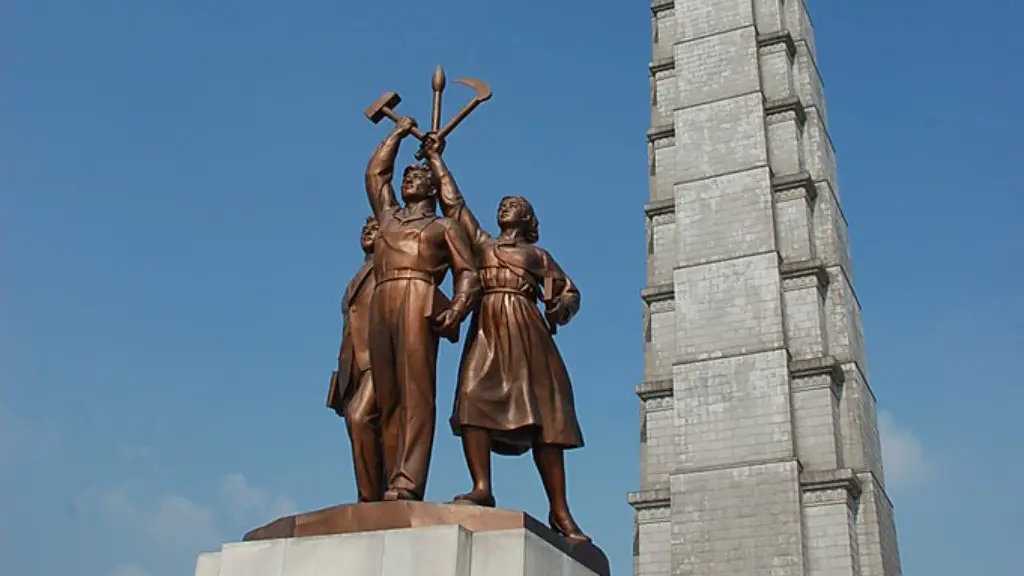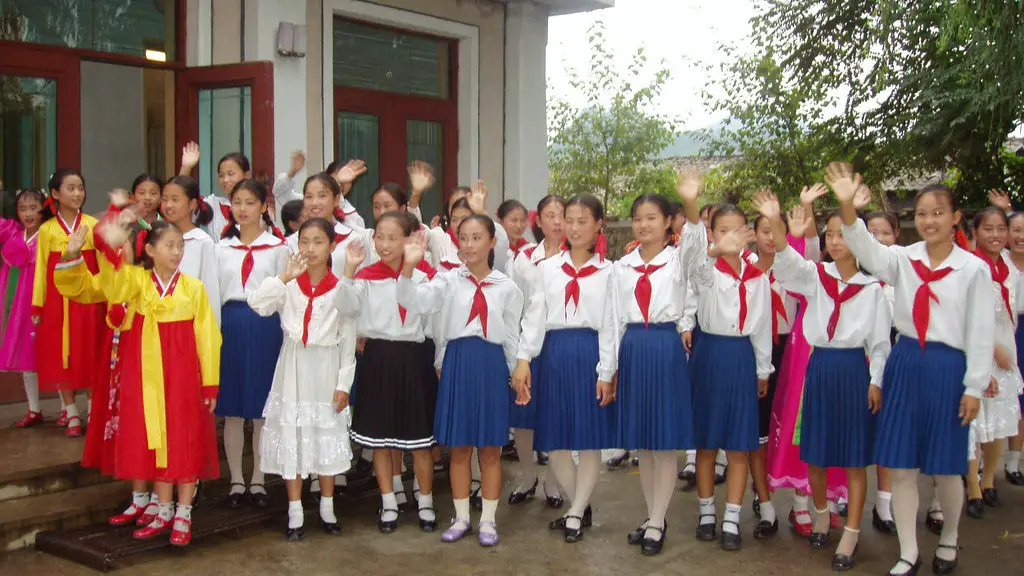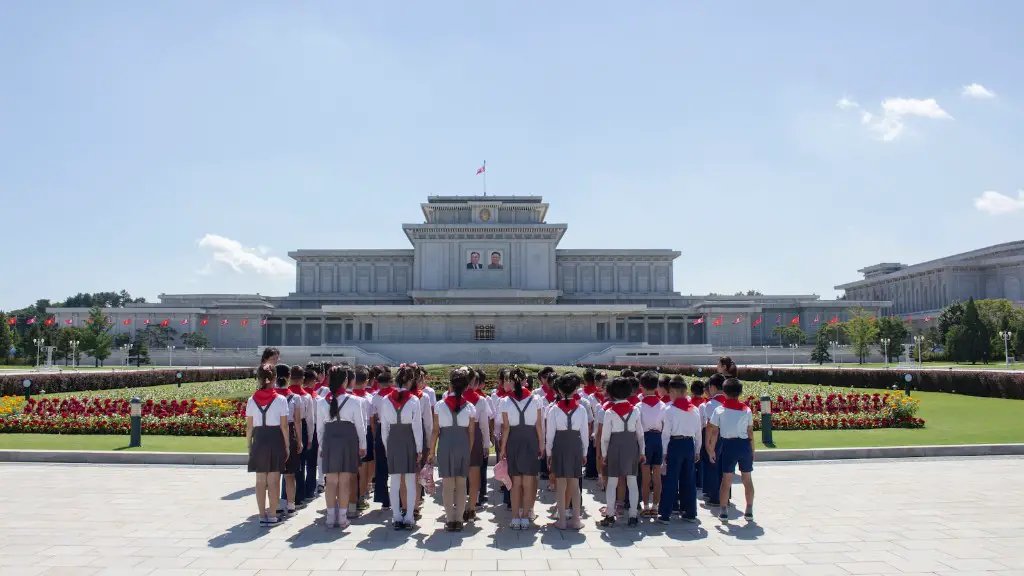North Korea’s Genocidal Regime
North Korea is widely known for its human rights abuses, aggressive nuclear program, and pervasive cult of personality. Under the leadership of Kim Jong-Un, North Korea has become increasingly dangerous and aggressive, engaging in frequent missile tests and bellicose rhetoric.To some, North Korea’s government appears to be a terrifying tyranny that is akin to a cult of personality.The authoritarian dictator Kim Jong-Un rules with an iron fist, severely restricting freedom of speech, press, and religion.Under his rule, North Korea executes hundreds of political prisoners, oppresses and imprisons people for the most minor of offences, and is accused of committing horrific acts of genocide.
The United Nations has highlighted numerous human rights violations perpetrated by the North Korean government, and yet the abuse of human rights and liberties continues.People in North Korea face cruel and degrading treatment on a daily basis, including jailing of family members in brutal labor camps and public executions.The government severely restricts outside influences, including communications with the rest of the world in an attempt to keep its citizens isolated and controlled.
North Korea’s Growing Nuclear Capabilities
North Korea has long held an obsession with nuclear weapons and has become increasing nuclear capable since Kim Jong-Un assumed power. Kim views the possession of nuclear weapons as a card to play in the international arena and has been determined to continue his nuclear ambitions despite international pressure.He has also become increasingly belligerent in his rhetoric and actions, conducting frequent missile tests and other provocative actions that have threatened security in the region and beyond.
North Korea has developed a sophisticated nuclear arsenal and is believed to possess a stockpile of over 30 nuclear weapons and intercontinental ballistic missiles (ICBMs). The United States in particular has become increasingly concerned about North Korea’s nuclear program, viewing it as one of the greatest threats to global stability. International negotiations over the dismantling of North Korea’s nuclear program have failed, leaving the US and other concerned nations in a difficult position.
The US Response to North Korea
The United States and other concerned nations have adopted a strategy of “maximum pressure” against North Korea, engaging in economic sanctions and diplomatic isolation to contain the regime. This strategy appears to have had some effect, as North Korea has been willing to negotiate in recent years and has promised to denuclearize.However, little tangible progress has been made, leaving the US and other nations searching for a way to peacefully resolve the crisis.
The US is also reportedly considering military options, though many experts view this as a last resort that could result in devastating reprisals and mass casualties. US officials have also indicated that they are open to the idea of direct negotiations with North Korea, though North Korea has yet to commit. However, some experts fear that any negotiations could only lead to a strategic nuclear stalemate, without any progress being made in dismantling North Korea’s nuclear arsenal.
For now, the US and other concerned nations are in a tough spot, attempting to find a way to peacefully resolve the North Korean crisis without resorting to military force. As long as North Korea continues to threaten the region and the world with its nuclear ambitions, it is unlikely that the international community will be able to relax its sanctions and diplomatic isolation.
Regional Implications
The North Korean situation has far-reaching implications beyond the United States, impacting the entire Korean Peninsula and beyond. South Korea and Japan have become increasingly alarmed by North Korea’s nuclear program and started building up their own military capabilities as a precaution. If war were to break out, these two countries would be the most directly affected, potentially suffering catastrophic losses if North Korea retaliated with its nuclear weapons.
China, North Korea’s only ally, is also watching with apprehension, as the crisis could potentially result in a conflict on its border. China has long held a policy of non-interference in North Korea’s internal affairs, but could be forced to get involved if it perceived that its own national security was threatened.
International Impact
The North Korean situation has global implications as well, with many nations expressing concern about the regime’s nuclear ambitions. The European Union and other countries have imposed economic sanctions, and the United Nations has numerous resolutions in place to try and contain the crisis. The fear is that North Korea could set off a nuclear arms race and plunge the region into a war, leading to devastating losses and destruction worldwide.
The US and other concerned nations have attempted to work with the international community to find a peaceful resolution to the crisis, while China has also taken on a larger role in recent times. However, progress appears to have stalled, as North Korea has yet to commit to denuclearizing and no viable solution has been proposed.
Diplomatic Solutions
The US and its allies are exploring diplomatic solutions to contain North Korea, but the major challenge remains in finding a peaceful way to denuclearize the regime. Negotiations have been attempted in the past but have yet to achieve any real progress, and the current stalemate has prompted many nations to consider more drastic steps.
Some countries have suggested the possibility of establishing a peace treaty that could potentially lead to normalized diplomatic relations between North Korea and other countries.However, this would require North Korea to make major concessions, something which seems highly unlikely at this stage.
The United States and its allies could also seek to strengthen the existing economic sanctions on North Korea and pressure the regime to negotiate. However, this could potentially result in a humanitarian disaster, and there is fear that any such move could lead North Korea to take drastic measures.
Conclusion
The North Korean situation is extremely complex and has significant global implications. The US and its allies are exploring potential diplomatic solutions, but progress has been slow and negotiations appear to have reached a stalemate. Faced with a menacing nuclear arsenal, the US and other nations must find a way to contain the situation and push for a peaceful settlement. Only then can we hope to bring peace and stability to the region.



